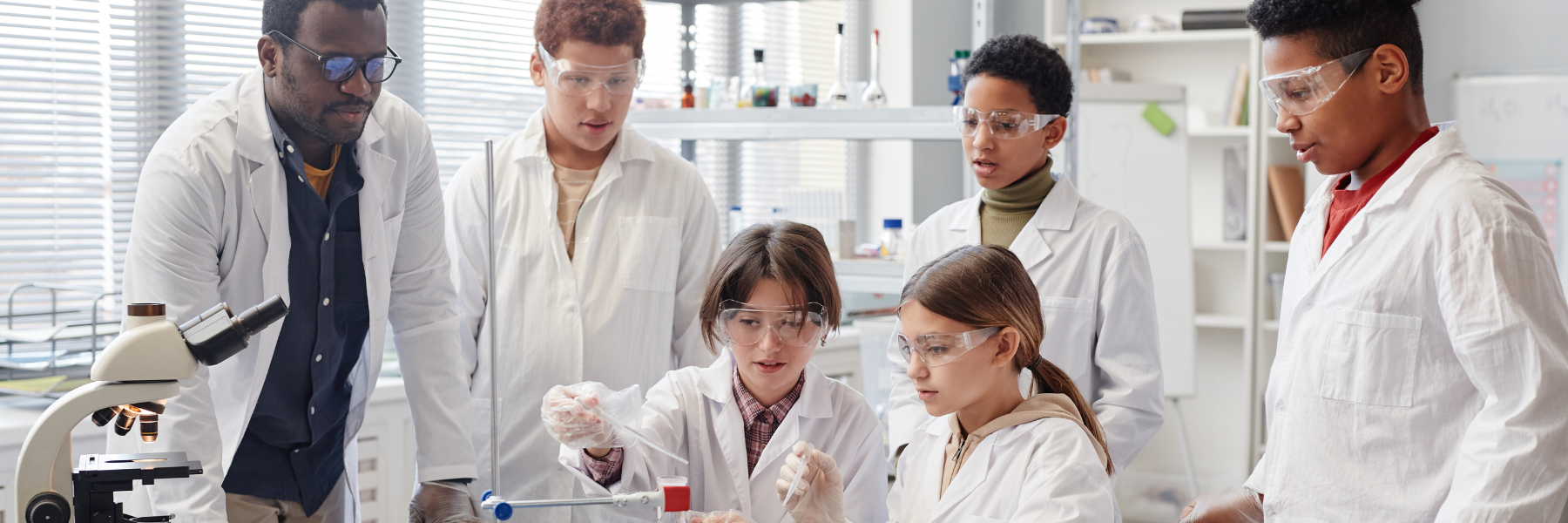How Important is Practical Science in the Classroom?
The importance of practical work in science education cannot be overstated. It forms the cornerstone of scientific learning, providing students with hands-on experience that brings theoretical concepts to life.
In this blog, we’ll explore the current state of practical science in UK classrooms, its significance in student learning and engagement, and how Innova Design Group can support schools in creating optimal environments for practical science education.
The Current State of Practical Science in UK Schools
In 2013, research commissioned by SCORE (Science Community Representing Education) revealed a concerning lack of resources for practical work in science education. The study found that state-funded secondary schools and sixth form colleges had access to only 70% of the equipment essential for teaching science subjects. The situation was even more dire in primary schools, with teachers having access to just 46% of the required materials.
This shortage of resources, including microscopes, consumables, and connecting leads for circuits, has made it challenging for qualified technicians to support science teachers in carrying out practical work. Despite these challenges, the importance of practical science remains paramount in inspiring students to pursue further studies in science and develop valuable skills for future STEM careers.
The Significance of Practical Science Activities
Practical science activities play a crucial role in the learning process. They engage students, helping them develop important practical skills, understand scientific investigation processes, and grasp broad scientific concepts through hands-on experiences. The quality, quantity, and breadth of practical work should be the ultimate focus of science education.
Recent initiatives, such as the STEM Camps delivered by STEM Learning in the summer of 2023, have demonstrated the positive impact of intensive practical science experiences on both students and teachers. These camps, funded by Goldman Sachs Gives, provided a space for students to re-engage with science learning and complement their core scientific and computing knowledge.
The Role of Practical Work in Developing Scientific Skills
Through hands-on experiments, students learn to:
- Formulate hypotheses and design experiments to test them
- Collect, analyse, and interpret data
- Use scientific equipment and follow laboratory procedures safely
- Collaborate with peers and communicate scientific findings effectively
These skills are valuable not only for those pursuing scientific careers but also contribute to critical thinking and problem-solving abilities beneficial in many aspects of life.
Balancing Theory and Practice in Science Education
While theoretical knowledge is undoubtedly important, the balance between theory and practice in science education is crucial. Practical work helps to reinforce theoretical concepts, making them more tangible and easier to understand. It also provides context for abstract ideas, helping students see the real-world applications of their learning.
The Impact of Practical Science on Student Engagement and Motivation
One of the most significant benefits of practical work in science is its ability to engage and motivate students. Hands-on experiments can:
- Spark curiosity and encourage students to ask questions
- Provide a sense of achievement when experiments yield results
- Make science more accessible and less intimidating for some students
- Demonstrate the relevance of scientific concepts to everyday life
Enhancing Practical Science with Innova Design Group
At Innova Design Group, we understand the importance of practical science in education. Our expertise in designing and equipping science classrooms can help schools maintain and enhance their practical science offerings, addressing the resource challenges highlighted in recent research.
We offer:
- State-of-the-art laboratory designs that facilitate a wide range of practical experiments
- Flexible furniture solutions that adapt to various teaching methods and practical activities
- Safety-conscious layouts that encourage hands-on learning while prioritising student well-being
- Storage solutions that make managing equipment and materials for practical work efficient and straightforward
Our team can work with you to create a science classroom that meets current curriculum requirements and inspires students to engage deeply with practical science. We understand the challenges educators face and can provide innovative solutions to ensure that practical work remains at the centre of science education.
Get in touch
Contact us today to explore how we can help you create a dynamic, engaging science learning environment that prepares students for future scientific study and careers.


